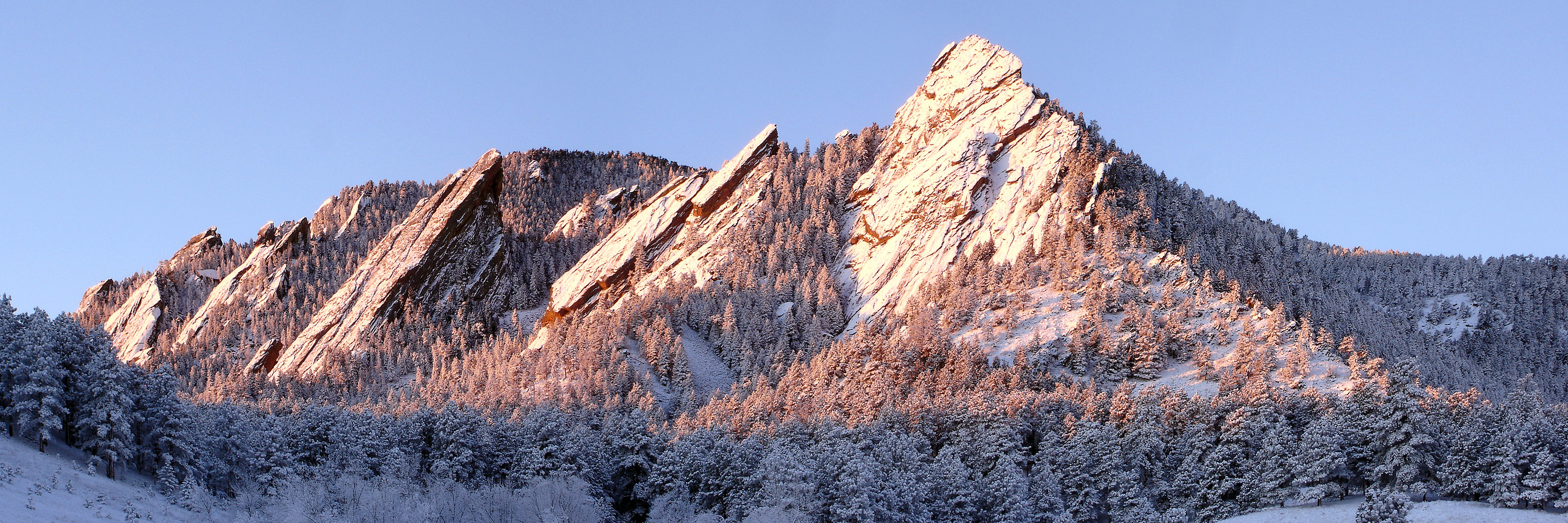|
Hannah Connell Barker
Hannah Connell Barker (1844–1918) was an early resident of Boulder, Colorado. Barker was a teacher, civic leader, businesswoman and land developer in an era when industrious women were not commonly recognized for their contributions. Among other things, Barker served as a teacher; as director of the Boulder Bank; and was instrumental in platting and developing significant parts of the City of Boulder. She also owned the land that was used for the construction of Barker Meadow Reservoir, Boulder's primary source of water. Early life Born in 1844 as Hannah Connell, Barker and her family emigrated from Ireland to Massachusetts in 1852. After spending time in Massachusetts and Iowa, she crossed the Great Plains with two other early immigrants to Boulder County, Colorado: her lifelong friend, Mary Davidson, and Davidson's husband, William (after whom Davidson Mesa in Boulder was named), and at some point along the way obtained a college education. In 1867, Barker settled in Ward, Co ... [...More Info...] [...Related Items...] OR: [Wikipedia] [Google] [Baidu] |
Boulder, Colorado
Boulder is a List of municipalities in Colorado#Home rule municipality, home rule city in Boulder County, Colorado, United States, and its county seat. With a population of 108,250 at the 2020 United States census, 2020 census, it is the most populous city in the county and the List of municipalities in Colorado, 12th-most populous city in Colorado. It is the principal city of the Boulder metropolitan statistical area, which had 330,758 residents in 2020 and is part of the Front Range Urban Corridor. Boulder is located at the base of the foothills of the Rocky Mountains, at an elevation of above sea level. The city is northwest of the Colorado state capital of Denver. Boulder is a college town, hosting the University of Colorado Boulder, the flagship and largest campus of the University of Colorado system as well as numerous research institutes. Starting in 2027, Boulder will become the new home of the Sundance Film Festival. History Archaeological evidence shows that Boul ... [...More Info...] [...Related Items...] OR: [Wikipedia] [Google] [Baidu] |
Barker Park
Barker may refer to: Occupations * Barker (occupation), a person who attempts to attract patrons to entertainment events * Barker (coachbuilder), a builder of horse-drawn coaches and later of bodywork for prestige cars * a person who strips tanbark from trees to supply bark mills People *Barker (surname), a list of people * Barker Burnell (1798–1843), U.S. Representative from Massachusetts * Barker Fairley (1887–1986), British-Canadian painter and scholar of German literature Places Antarctica *Barker Range, Victoria Land, a mountain range *Barker Peak, off the coast of Victoria Land * Barker Bank, Graham Land, a marine bank * Barker Nunatak, Palmer Land Australia *Division of Barker, an Electoral Division in South Australia for the Australian House of Representatives *Mount Barker (South Australia) *Barker Inlet, South Australia *Barker River, Western Australia * Barker Passage, Western Australia, a water channel United States *Barker, Broome County, New York, a town * Bar ... [...More Info...] [...Related Items...] OR: [Wikipedia] [Google] [Baidu] |
Temperance Activists From Colorado
Temperance may refer to: Moderation *Temperance movement, movement to reduce the amount of alcohol consumed *Temperance (virtue), habitual moderation in the indulgence of a natural appetite or passion Culture * Temperance (group), Canadian dance-pop musical group * Temperance (Tarot card), Major Arcana Tarot card *''Temperance'', album by Astrud Gilberto *Temperance Brennan, fictional character by Kathy Reichs **Temperance "Bones" Brennan, fictional character of TV series ''Bones'' * Temperance (Italian band), Italian melodic metal group ** ''Temperance'' (album), 2014 debut album by the Italian band Places United States *Temperance, Georgia, an unincorporated community *Temperance Bell, Georgia, an unincorporated community *Temperance, Michigan, a community *Temperance Hall, Tennessee, a small community *Temperance Island, Lake Michigan *Temperance River, Minnesota Other places * Temperance Vale, New Brunswick, Canada * Temperance Town, Cardiff, Wales See also * Temperance ... [...More Info...] [...Related Items...] OR: [Wikipedia] [Google] [Baidu] |
19th-century American Businesspeople
The 19th century began on 1 January 1801 (represented by the Roman numerals MDCCCI), and ended on 31 December 1900 (MCM). It was the 9th century of the 2nd millennium. It was characterized by vast social upheaval. Slavery was Abolitionism, abolished in much of Europe and the Americas. The First Industrial Revolution, though it began in the late 18th century, expanded beyond its British homeland for the first time during the 19th century, particularly remaking the economies and societies of the Low Countries, France, the Rhineland, Northern Italy, and the Northeastern United States. A few decades later, the Second Industrial Revolution led to ever more massive urbanization and much higher levels of productivity, profit, and prosperity, a pattern that continued into the 20th century. The Catholic Church, in response to the growing influence and power of modernism, secularism and materialism, formed the First Vatican Council in the late 19th century to deal with such problems an ... [...More Info...] [...Related Items...] OR: [Wikipedia] [Google] [Baidu] |
Deaths From The Spanish Flu Pandemic In Colorado
Death is the end of life; the Irreversible process, irreversible cessation of all biological process, biological functions that sustain a living organism. Death eventually and inevitably occurs in all organisms. The remains of a former organism normally begin to Decomposition, decompose shortly after death. Some organisms, such as ''Turritopsis dohrnii'', are Biological immortality, biologically immortal; however, they can still die from means other than Senescence, aging. Death is generally applied to whole organisms; the equivalent for individual components of an organism, such as Cell (biology), cells or Tissue (biology), tissues, is necrosis. Something that is not considered an organism, such as a virus, can be physically destroyed but is not said ''to die'', as a virus is not considered alive in the first place. As of the early 21st century, 56 million people die per year. The most common reason is aging, followed by cardiovascular disease, which is a disease that af ... [...More Info...] [...Related Items...] OR: [Wikipedia] [Google] [Baidu] |

